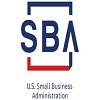FDA Warning Letters – Initiative Taken by FDA for Violating the Quality Standards
01/21/2020
Category: Other Blogs
United States Food and Drug Administration send an official message to the particular manufacturer or the organization on account of violating any rule of Federal Food, Drug, and Cosmetic Act in a federally regulated activity. FDA generally finds out violations through its inspections and also based on evidence. The official message is in the form of a warning letter of informal and advisory. Hence no enforcement action is taken, or final response is granted. Rather they allow the firm to take prompt corrective action. These FDA warning letters are open to the public under the Freedom of Information office, but any confidential information is hidden in those letters. After completion of the assessment of corrective actions followed by inspection FDA launches the close-out letter, which will confirm that the firm has taken corrective actions to address the violations as was addressed in the warning letter. Computer software, research planning labelling, product advertising, and marketing are seen to be the main areas of having a breach.
The warning letter that comes must be titled as “WARNING LETTER “at the top. It is handed over to the highest official who is in charge of the responsibilities of the firm. The letter contains the inspection dates and an elaborate justification of the violation of conditions, practices, products as well as an opportunity to the firm to correct it as soon as possible. As a whole, this letter requests corrective action and a documented response within 15 working days from the firm. The response letter should include each step taken to prevent the repeat of violations and documented sources of the promises. If failed to complete the correction within 15 days, the reason for the delay of action and the stipulated time within which the correction can be done should be mentioned. Proficiency testing is important, and sufficient time should be given for doing the changes and undergo training for the testing.
Also Read: General Facts About FDA Establishment Registration
Legally it is not required that the FDA should warn the firm for violating a law; hence a warning letter is not essential in enforcement action. But there are a lot of circumstances when issuing a warning letter is not suitable. Rather, the stipulation of enforcement action is the best solution. The projected manufacturer should give sufficient effort to make the changes and gain back the confidence of the FDA else. Further strict action can be taken by the agency, and the company loses the license. This will drop down the confidence of the employees, and the overall working environment is degraded.
Further, if a customer suffers an injury or hazard due to the firm’s negligence, the situation may arise that the owner is dragged to the court. Hence overall, FDA policy will safeguard the interest of both the customer and commercial existence of the company. These cases are seen when the violation is intentional, leads to massive injury or death, following the same pattern of violation again and again in spite of giving warning notice. There are two types of special warning letters:
- Joint Warning letter: Launched on 15th October 2009 by FDA and Federal Trade Commission to a website that was selling fake supplements and cheating the consumers. This letter is also issued in cases that the company advertises its false products on social media platforms.
- Cyber Warning letter: These are online warning letters sent by the FDA to websites that sell illegal drugs and are engaged in unlawful practices of making unauthorized prescriptions. The inspection, in this case, is different from physical inspections and routine services.
There is a provision of a lead centre who is responsible for communicating with other engaged centres, Office of Chief Counsel, and the district. This centre will undergo review and incorporation of comments.
FDA does not issue a warning letter if they found that the firm has already done corrections and preventive actions supporting the official message. During the subsequent inspection, FDA experts verify whether the implementations are according to the standards or not. The timing of the inspection can be daily, monthly and yearly, depending on the terms and conditions of the issuing office and magnitude of the violating terms of the quality parameters.
tagging: FDA warning letters


